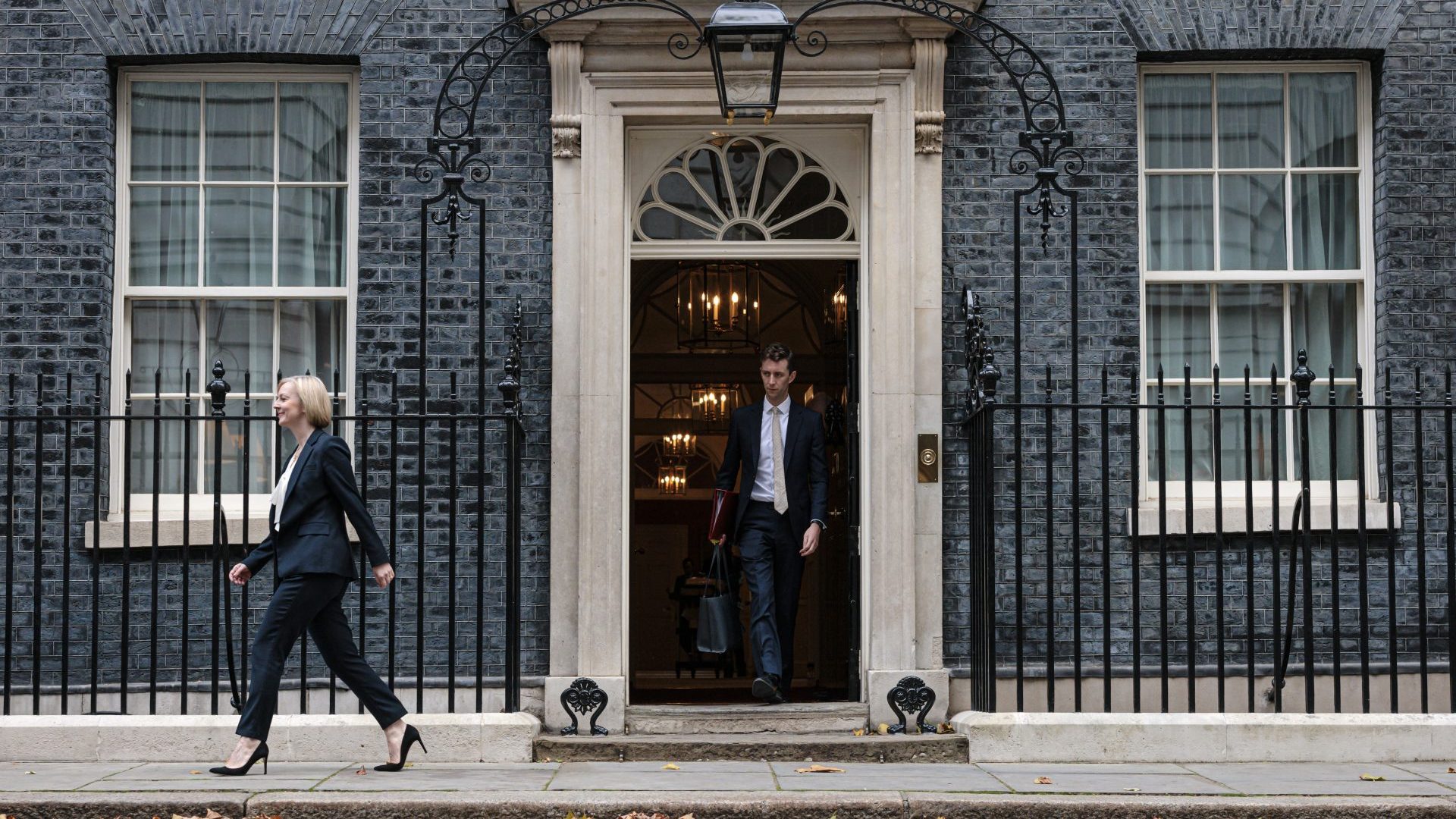There are people who define themselves by their enemies: who make loving lists of real and imagined opponents, the better to define themselves. It’s not a new thing: the Emperor Nero did it in 68 AD, compiling a register of hostis publicus. Richard Nixon did the same thing; the actor Paul Newman – ol’ Butch Cassidy himself – made the initial list of 20, but as time went on the list contained hundreds.
Before the unforced errors that have left her hanging by a thread, Liz Truss announced herself to the world as a prime minister who was opposed by what she called the Anti-Growth Coalition. It seems to have an awful lot of members, including Labour, the Lib-Dems, Scottish Nationalists, an odd group she called “Brexit deniers”, (does she mean people who would rather Brexit hadn’t happened or people who deny that it has?), militant unions and North London liberals who take taxis.
In that keynote speech at the Conservative Party Conference she also twice mentioned environmental activists as members of the Anti-Growth Coalition, name-checking Extinction Rebellion and also referring to Greenpeace, who has staged a small pro-democracy demo at the conference.
But it is already clear that the environmental section of Truss’s Anti-Growth Coalition is bigger than these two organisations. Extinction Rebellion is for hotheads and public spectacle, and fair enough, so far as that sort of stuff goes. Greenpeace has a long tradition of direct action and played a significant part in bringing about the moratorium on commercial whaling in 1986.
But the environment movement has a less extreme side: one for coolheads, full of sober organisations that never go off half-cocked, that never look for sensation, that do not vandalise paintings by Van Gogh, but are content, in the normal course of things, to do their stuff and try and look after the environment – always bearing in mind that 100 per cent of us live in the environment and would prefer it to be healthy.
And yet organisations like these – organisations that don’t go out of their way to make waves and posture in public – have also lined themselves up against the policies of the new prime minister. What’s more they have done so with unprecedented fury. These calm, measured organisations have suddenly started opposing government policy in wholly intemperate language.
“Make no mistake, we are angry,” said an unnamed but official blog for the Royal Society for the Protection of Birds. Jeff Knott, director of policy at RSPB, said: “We are readying ourselves to fight the biggest attack on nature in a generation.”
Helen McGrady of the National Trust said: “This is the biggest attack on nature, certainly in my lifetime.” She added: “At some point we will run out of patience.”
The Wildlife Trusts is the umbrella organisation for the 46 county wildlife trusts that operate all over the UK, Isle of Man and Alderney (and yes, there is one for London). Craig Bennett, the chief executive, said: “Nature is under attack from a raft of dangerous decisions by the government and we know people are furious at the new threats.”
Joan Edwards, director of policy at the Trusts, added: “This is the most destructive set of policies I have seen in over 35 years of working in nature conservation.”
These organisations are often vilified by the more radical as stick-in-the-muds — and yet they have made it plain that they are not just making reasoned objections to a given policy – they are also filled with the most passionate anger. And if they are, so, it can reasonably be assumed, are their members.
This is a response to the government’s explicit plan to encourage “growth” at the expense of the environment. Truss mentioned “growth” 29 times in her half-hour conference speech, and referenced the Anti-Growth Coalition six times. Bennett summed up: “Vital legal protection for wildlife is at risk, fuel extraction is being favoured over renewables and the government is going back on plans to reward farmers for managing land in a nature-friendly way.” It seems that the core policy of the government is to sacrifice the environment in the name of growth.
The first of the proposed measures is to get rid of a number of EU laws that were brought in to protect nature, the environment, water quality, land, wildlife and food. There are 570 of these laws in total: the government intends to replace them with an unregulated free-for-all. The RSPB called it “an unprecedented attack on nature and the laws that protect it.”
There are also plans for at least 38 “investment zones”: apparently places where you can do whatever you like if you think it will make money. Or to quote the RSPB again, legislation that “could trash planning rules.”
The government also intends to get rid of the Environmental Land Management Schemes, or Elms. This was a post-Brexit move brought in under Michael Gove to show that the UK could do better environmental stuff outside the EU. Its aim was to pay farmers for managing in a nature-friendly way, creating space for wildlife and absorbing carbon. The scheme has been four years in the making: the new government is scrapping it on sight.
Bennett again: “They have no democratic mandate to do this… what we have seen in the last week is Liz Truss’s government basically trashing all the environmental commitments that were in the 2019 manifesto.”
Oh – and the government plans to allow fracking to take place once again.
And that all leaves observers wondering which is the more remarkable thing: to see the government systematically waging war on nature or to see all these polite, sober-sided NGOs unanimously howling in anger.
The Conservative heartland is seen very much as older white home-owning southerners; the cliché view of the membership of the RSPB, the county wildlife trusts and the National Trust is not entirely dissimilar. Between them these three organisations have eight million members.
But they are not the only organisations to line up against the government policies: to stand up and be counted as members of the Anti-Growth Coalition. A total of 78 of them were signatories to an open letter to the prime minister that begins: “Your government’s recent moves towards environmental deregulation will hasten the decline of the natural world.”
This is the point at which the organisations involved have – briefly – throttled back on anger and stated their case in unemotional terms. The devastating part is not the content but the signatories.
The RSPB, the Wildlife Trusts and the National Trust we know. Others include WWF, Friends of the Earth, Woodland Trust, Wildfowl and Wetlands Trust, British Ecological Society, Rivers Trust, Marine Conservation Society, Greenpeace, Surfers against Sewage, Keep Britain Tidy, RSPCA, The Ramblers, Bumblebee Conservation Trust, Buglife, Angling Trust, Plantlife, Mental Health Foundation, Shark Trust, Youth Hostel Association, Butterfly Conservation, Zoological Society of London, Council for British Archaeology, League Against Cruel Sports, Open Spaces society, Bat Conservation Trust, Born Free, Wild Justice…
The 78 signatories add up to 15 million members, very few of them militants by temperament, but very many of them, following the lead of these organisations and those that run them, are baying with fury. The Anti-Growth Coalition is, it seems, growing by the day: growing with each new anti-environment policy initiative that the government comes up with.
And one of the things that exasperates conservationists is the idea that pro-environment is anti-growth. Growing stuff is at the very heart of the environment movement. To be among growing things is the way people want to live: people want gardens if they can’t have large country estates, people want to live near parks and commons and will pay handsomely for the privilege; joggers jog through the park and along the towpath, rather than around the block.
Conservationists also object to the idea that they are retrogressive, when concern for the environment is about leaving a viable world for our great-great-grandchildren. To put this at risk for short-term gains for the few is, to many – loudly and obviously – unacceptable.
There comes a point when appearing on a list of enemies becomes a point of honour. The American pro-gun lobby the National Rifle Association’s list included Britney Spears, Barry Manilow and the makers of Ben and Jerry’s ice cream. J Edgar Hoover, former head of the FBI, listed the “enemies of the US”, including Martin Luther King. Paul Newman described his appearance on the Nixon List as “my greatest achievement”.
In recent days many of the most unlikely and least militant organisations have taken a militant stand against the government. They are standing up tall and proud as members of the Anti-Growth Coalition. McGrady of the National Trust said: “We choose our battles carefully and we don’t do it often.” Direct action is not ruled out: it’s a real possibility that people will be marching to Westminster on behalf of bumblebees and sharks and dormice and blue tits and grass snakes and clean air and sound climate and water free of floating turds.
Is it possible that the thing that finally brings down this extraordinary government might be a butterfly?











